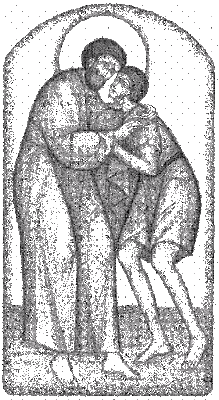XXVII SUNDAY IN ORDINARY TIME - Lk 17:5-10
A prophet is always a voice that speaks for God so that we are addressed by Him, as he calls and challenges us. However, many times, the prophet also gives voice to our moaning, as we turn to God complaining of the suffering and the pain we go through. There are times when we feel abandoned and thrown into a ditch as if we were discardable. It is as if God does not care or as if he does not exist. Habakkuk went through such an experience and he complained to God saying:
“How long, O Lord, am I to cry for help
while you will not listen;
to cry ‘Oppression!’ in your ear
and you will not save?” - Habakkuk 1:2
It sounds as if God is on the side of the exploiters and the evildoers because life is easy on them. In spite of this, the prophet is bold enough to complain before God, being confident that God will listen to him. And Habakkuk received a reassuring answer. God has not forgotten his people and he will fulfil his promise. It may seem to be slow coming, but if it will come, “without fail”. While waiting, we must remain faithful, being certain that “the upright man will live by his faithfulness”.
In his Second Letter to Timothy, Paul draws attention to essential attitudes in any Christian, but especially in those in positions of leadership: a) “Rekindle the gift of God” received for the service of the community; b) do not be intimidated, but on the contrary show strength and courage that must be measured by love and moderation; c) bear witness to Jesus Christ, never being ashamed of him and those who suffer for him; d) be willing to suffer for the Gospel; e) trust in the power of God; f) be guided by the words of those who teach us according to faith and love that are in Jesus Christ.
The request of the Apostles must become our daily prayer: Lord, "increase our faith." We easily realise that our faith is weak because we are fragile and fickle and we know that it is impossible to grow in faith by our efforts alone; Faith is a gift from God, and we ask it from Him: "Increase our faith." According to Jesus, by faith, the impossible becomes possible, because through faith we share in God’s power. If we are daily faced confronted with our powerlessness, it is because we allowed our faith to die and do not rely on God to revive it. Let us pray:
Lord, increase our faith.





